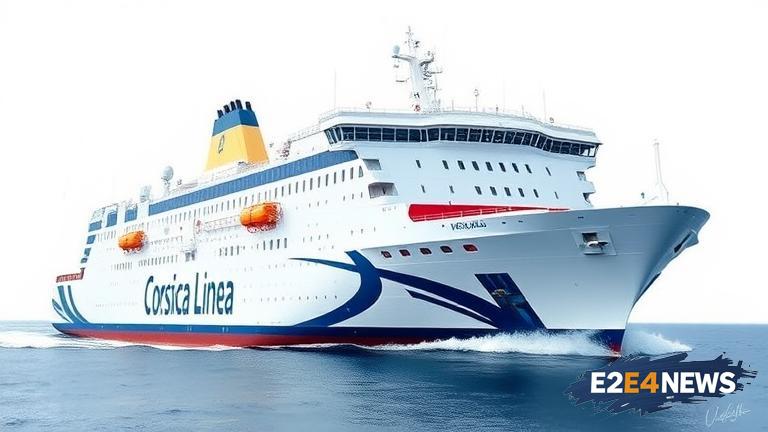The maritime industry has been under increasing pressure to reduce its environmental footprint, and one company that has taken significant steps in this direction is Corsica Linea. The French ferry operator recently partnered with Wartsila, a leading provider of maritime solutions, to retrofit one of its vessels with a fuel-saving package. The retrofit, which was installed on the Corsica Linea ferry, has resulted in a substantial reduction in fuel consumption, leading to lower emissions and operating costs. According to reports, the ferry has achieved fuel savings of up to 10 percent, which is a significant improvement considering the vessel’s size and operational requirements. The Wartsila retrofit package included a range of upgrades, including the installation of new propellers, a more efficient rudder, and an optimized hull design. These modifications have enabled the ferry to operate more efficiently, reducing its energy consumption and minimizing its impact on the environment. The project was completed in a relatively short period, with the retrofit taking just a few weeks to install. The results have been impressive, with the ferry’s fuel consumption decreasing by a notable margin. This reduction in fuel consumption has not only led to cost savings but also contributed to a decrease in greenhouse gas emissions. The success of this project demonstrates the potential for retrofitting existing vessels to improve their environmental performance. It also highlights the importance of investing in innovative technologies and solutions that can help reduce the maritime industry’s carbon footprint. Corsica Linea’s commitment to sustainability is evident in its decision to invest in this retrofit package, and the company’s efforts are likely to have a positive impact on the environment. The partnership between Corsica Linea and Wartsila is a prime example of how collaboration between industry stakeholders can drive innovation and lead to more sustainable practices. As the maritime industry continues to evolve, it is likely that we will see more companies adopting similar approaches to reduce their environmental impact. The use of retrofit packages, such as the one installed on the Corsica Linea ferry, is expected to become more widespread as companies seek to improve the efficiency and sustainability of their operations. In conclusion, the Corsica Linea ferry’s achievement is a significant milestone in the maritime industry’s journey towards sustainability, and it is likely to inspire other companies to follow suit. The project’s success is a testament to the effectiveness of Wartsila’s retrofit package and the potential for innovative solutions to drive positive change in the industry.
